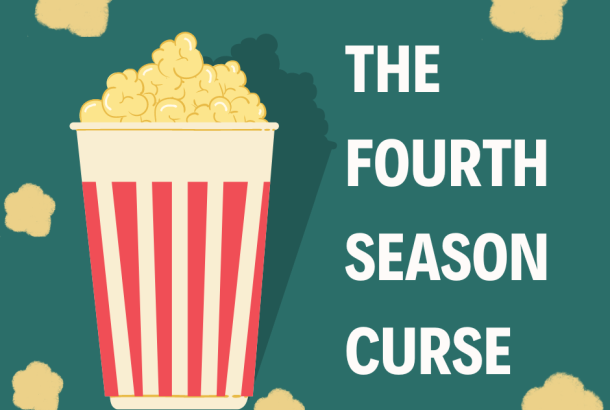
Warning: This article contains spoilers for Sally Rooney’s Conversations with Friends.
It was supposed to be the hit of the summer. Yet, just like its meek characters, Conversations with Friends faded out of public consciousness without leaving any permanent cultural mark.
Sally Rooney’s original novel of the same title is near and dear to many. I spoke to some friends and fellow students – Alice, Daisy, and Martha – about the impact the TV series had on their lives and whether this adaptation felt just as emotionally poignant as its eminently successful predecessor, Normal People.
When I watched Normal People back in lockdown, it felt as much of a coming-of-age story as that of Marianne’s (Daisy Edgar-Jones) and Connell’s (Paul Mescal). It was the first time I felt a series had broken me down and reconfigured me differently.
I was hesitant when Hulu announced they were adapting Conversation with Friends. Even with the same production team and director in tow, Rooney’s story is inherently harder to warm to than Rooney’s first book Normal People. “Conversations is more internal, it’s a hard book to capture,” Alice said. Most of the drama in the novel takes place over e-mail, which does not make for edge-of-your-seat viewing.
Conversations with Friends is a mismatched love story where you’re not even sure the characters should be together. It is rather difficult to relate to the protagonist, Frances (Alison Oliver), the 21-year-old communist who dislikes work and exclusively shows affection towards those she admires. “I hope that it was just misdirected; it’s hard to imagine anyone being enamoured by her, she’s so cold and cutting. Where is the energy? Where is the chemistry? The whole thing was so dull and unbelievable” (Daisy).
The initial casting announcement caused division between fans of the book. Netflix’s Sex Education’s (2019-) Jemima Kirke was cast as Melissa, described as “Girlbossy but vulnerable” by Alice. Her reaction to Frances’ affair with her husband is more ambiguous in the book. Martha believes “Melissa is vilified throughout it- she feels quite flat at times, seems cold-feeling like she wouldn’t like you”.
Not wanting children and prioritising a career over relationships are often punishable traits for female characters (see Miranda Priestly from The Devil Wears Prada). Kirke balances this tension between herself and her relationship with Nick (Joe Alwyn). The affair between Nick and Frances affects Melissa marginally on the surface.
The general consensus amongst those I spoke to was that Alwyn’s Irish accent could have been improved: Alice felt “sometimes it seems he’s just playing himself”. Frances, the inaccessible protagonist, is aided by her larger-than-life extroverted best friend and ex-lover, Bobbi (Sacha Lane). “Bobbi did occasionally come across as rude and overconfident, but I think she was very tender towards Frances. I don’t think you’re supposed to like characters, they’re very immersively written,” Martha commented.
The show focuses more on the characters than on the plot, which would be perfectly fine if there was any character development. For the most part, they all fumble over each other, unsure of what they really want, and this dissatisfying strife is frustrating for the viewer.
A core theme of the book Conversations with Friends is Frances’ relationship to her own body and how this relationship relates to those around her. Halfway through the series, Frances is diagnosed with endometriosis, a painful long-term condition in which tissue from the womb grows elsewhere and is often misdiagnosed as extreme period pain.
“Her diagnosis serves to clarify to her what it means to suffer in a very mundane way. It teaches her that not everything in life is profound. She then also learns that about her relationship with Nick. The illness informs the relationship,” Daisy explained. The most realistic part of the drama is that Frances makes decisions based on what has happened to her.
Martha feels “Frances has a lot of misplaced shame, she hates asking for things. The core of her life is her feelings towards Nick. After the diagnosis, she gains some independence from those feelings, and she learns to finally ask for help”. We learn that pain forces us to grow in unpredictable ways.
Alice reflected that “even if you haven’t gone through anything like that, most women have gone through some things that they don’t understand about their bodies. Frances feels like that too, but she doesn’t want to share these feelings with Nick because she doesn’t want to feel like a burden to him.”
General opinion was that the series dealt with the depiction of illness incredibly well. The university experience was also well-realised. As Alice said, “as a uni student, it’s good to see a story about university life, even the mundane things like going to the library” or buying the cheapest bottle of wine from the off-license down the road to sit on your sofa and finish it in an evening. It’s these moments between Bobbi and Frances that feel comforting in the face of pre-graduation existential crisis.
For those who empathise with Frances or any of the other characters, Conversations with Friends will be a great source of comfort. However, for those who struggle with the cold tone, the moral dubiousness of the series, and the unpredictable characters, the series will fall flat. We await the probable adaptation of Rooney’s third novel, Beautiful World Where are You?, hoping it speaks to us more than Conversations did.
Thanks to Alice, Daisy and Martha for their contributions to this article.
2.5/5.
Conversations with Friends is available to watch on BBC iPlayer.







